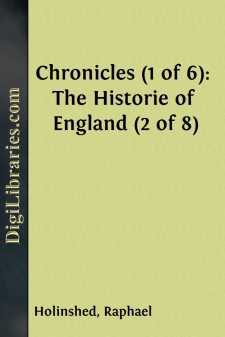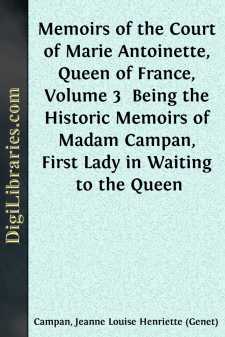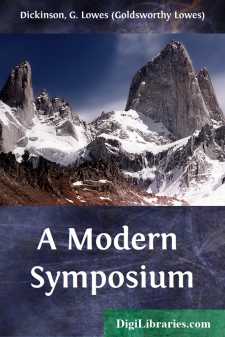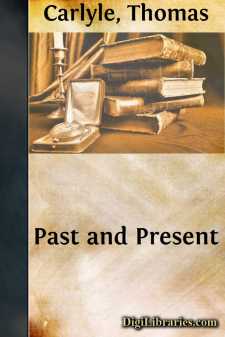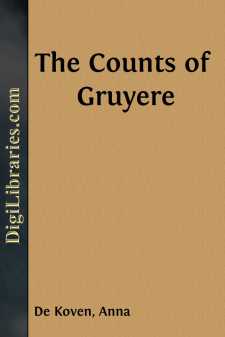History
- Africa 30
- Americas (North Central South West Indies) 50
- Ancient 68
- Asia 58
- Australia & New Zealand 8
- Canada 41
- Caribbean & West Indies 1
- Civilization 20
- Eastern Europe 12
- Europe
- Expeditions & Discoveries 60
- General 77
- Historical Geography 1
- Jewish 9
- Latin America 3
- Medieval 8
- Middle East 13
- Military 248
- Revolutionary 8
- Study & Teaching 5
- United States 353
- Western Europe 56
- World 13
Europe Books
Sort by:
CHAPTER I ACROSS THE REDEEMED LANDS It is unwise, generally speaking, to write about countries and peoples when they are in a state of political flux, for what is true at the moment of writing may be misleading the next. But the conditions which prevailed in the lands beyond the Adriatic during the year succeeding the signing of the Armistice were so extraordinary, so picturesque, so wholly without...
more...
THE FIRST CHAPTER. Hitherto haue we spoken of the inhabitants of this Ile before the comming of Brute, although some will néeds haue it, that he was the first which inhabited the same with his people descended of the Troians, some few giants onelie excepted whom he vtterlie destroied, and left not one of them aliue through the whole Ile. But as we shall not doubt of Brutes comming hither, so may we...
more...
by:
Alfred Sidgwick
INTRODUCTORY I was once greatly impressed by a story of an officer in the German army, who told his English hostess that he knew the position of every blacksmith's forge in Yorkshire. I wondered at the time how many officers in the English army had learned where to find the blacksmiths' forges in Pomerania. But those are bygone days. Most of us know more about Germany now than we do about our...
more...
I was born the thirteenth child of a family of fourteen, on the thirteenth day of the month, and I have for many years resided at No. 13 in a certain street in Westminster. In spite of the popular prejudice attached to this numeral, I am not conscious of having derived any particular ill-fortune from my accidental association with it. Owing to my sequence in the family procession, I found myself on my...
more...
ON the eighteenth of January 1691, the King, having been detained some days by adverse winds, went on board at Gravesend. Four yachts had been fitted up for him and for his retinue. Among his attendants were Norfolk, Ormond, Devonshire, Dorset, Portland, Monmouth, Zulestein, and the Bishop of London. Two distinguished admirals, Cloudesley Shovel and George Rooke, commanded the men of war which formed...
more...
During the first few months of his reign Louis XVI. dwelt at La Muette, Marly, and Compiegne. When settled at Versailles he occupied himself with a general examination of his grandfather's papers. He had promised the Queen to communicate to her all that he might discover relative to the history of the man with the iron mask, who, he thought, had become so inexhaustible a source of conjecture only...
more...
A MODERN SYMPOSIUM OME of my readers may have heard of a club known as the Seekers. It is now extinct; but in its day it was famous, and included a number of men prominent in politics or in the professions. We used to meet once a fortnight on the Saturday night, in London during the winter, but in the summer usually at the country house of one or other of the members, where we would spend the...
more...
by:
Thomas Carlyle
INTRODUCTION Being an appreciation from "The Dial" (July 1843) by Ralph Waldo Emerson Here is Carlyle's new poem, his Iliad of English woes, to follow his poem on France, entitled the History of the French Revolution. In its first aspect it is a political tract, and since Burke, since Milton, we have had nothing to compare with it. It grapples honestly with the...
more...
by:
Anna De Koven
PROLOGUE n the edge of a green plain around which rise the first steps of the immense amphitheatre of the Alps, a little castled city enthroned on a solitary hill watches since a thousand years the eternal and surpassing spectacle. Around its feet a river runs, a silver girdle bending northward between pastures green, while eastward over the towering azure heights the sunrise waves its flags of rose...
more...
by:
Thomas Carlyle
Chapter I. — BRANNIBOR: HENRY THE FOWLER. The Brandenburg Countries, till they become related to the Hohenzollern Family which now rules there, have no History that has proved memorable to mankind. There has indeed been a good deal written under that title; but there is by no means much known, and of that again there is alarmingly little that is worth knowing or remembering. Pytheas, the Marseilles...
more...



